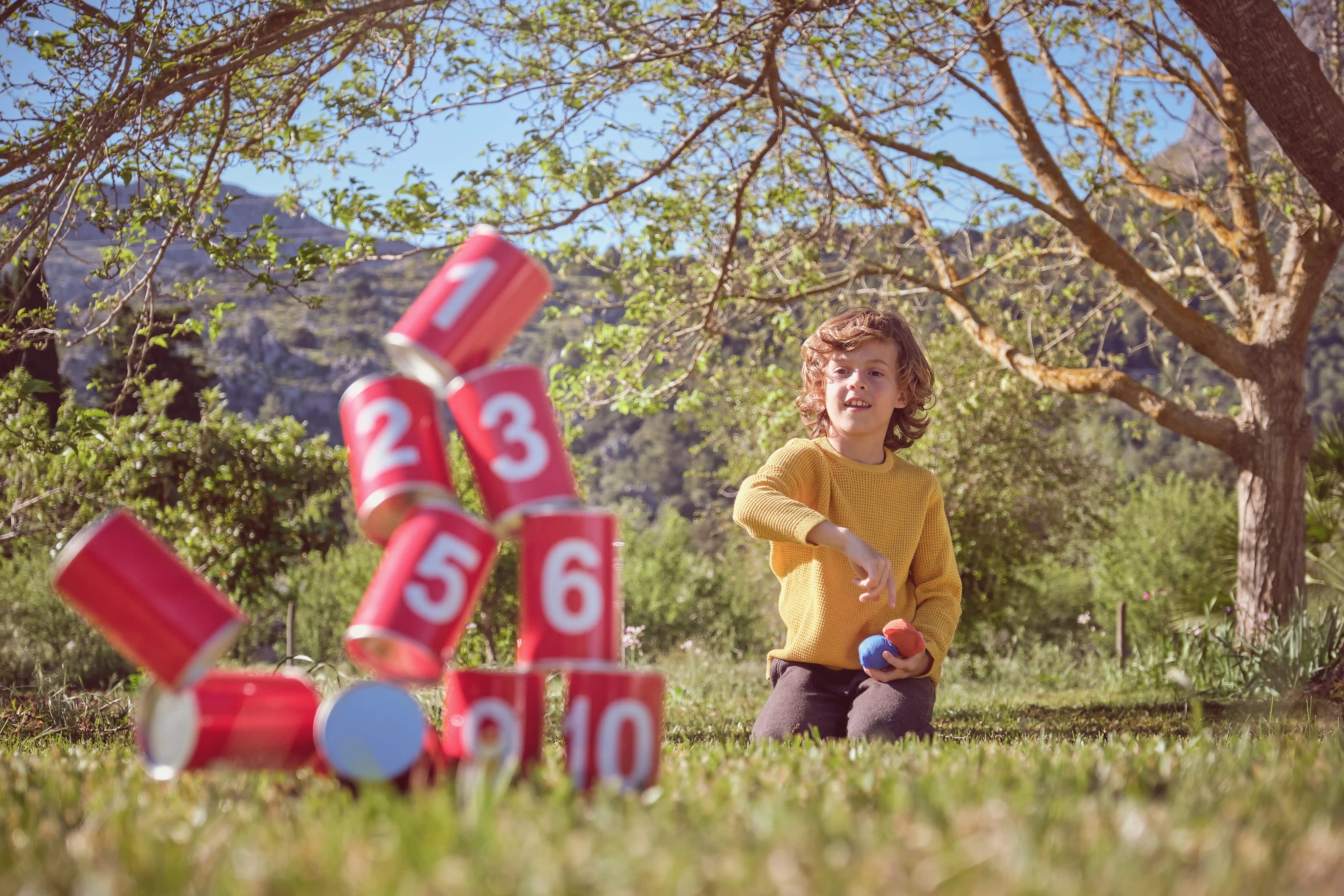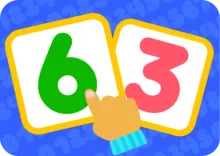When Do Kids Learn Numbers? Gaining Math Skills for Successful Development
Kids learn numbers best through hands-on practice and everyday examples. This guide covers simple ways to build number sense with games, routines, and activities that support counting, matching, and early math thinking.

Kids learning numbers through play and daily routines
Kids make progress continually, gaining new knowledge daily. Every ability is built on previous experiences, and math skills are no exception. Just as with language, reading, and colors, parents may assist their kids in discovering the world of counting. When do kids learn numbers? This question bothers many parents, so they wonder what time is appropriate for their child to step into a new stage. In this article, we’ll discuss this subject in detail, providing in-depth explanations and recommending valuable tips and techniques.
Introduction to Teaching Numbers to Kids
While studying numbers may seem easy, it actually turns out to be challenging. 1, 2, 3 – what’s so special about it? The thing is that your kid may count to 5 or even 10, but when they say these words, they don’t understand their meaning. So, teaching basic math becomes a complex and long process.
It’s a common misconception that kids begin studying numbers in school; this process starts much earlier. Children become familiar with numbers at a very young age through different interactions and activities. Each skill, from identifying shapes to counting and finding patterns, builds and layers on the knowledge they already have.
When teaching numbers to preschoolers, they might skip some or randomly change the sequence. The more they hear others count, the more confident they’ll become when doing it on their own. That’s the reason parents need to engage in the training and repeat the correct arrangement from time to time.
The standard rule to remember is that every child develops at their own pace. That’s why some may instantly grasp the concepts, while others may need more time to understand them.

Help your child
grow with Keiki
We’ll help you turn everyday screen time
into real learning progress.
Importance of Early Number Learning
Are kids learning numbers more quickly at an early age? The rudimentary acquisition of numerical and counting skills is connected to cognitive development. This is one of the cornerstones that lays the foundation for further learning success. Kids develop these abilities from babyhood.
Numerical adventures start with rote counting, which entails simple recitation without necessarily understanding the quantities. This skill progresses to one-to-one correspondence, where children begin to associate each number word with a specific item. It helps them better understand the concept of quantity. So, engaging in age-appropriate activities and games in toddlerhood can contribute to developing number sense.
By introducing your kid to numbers, you help them learn the value of things and make sense of their surroundings. For instance, they start to comprehend that having 3 bananas means more than having just 1 banana.
Teaching kids numbers from the moment they begin to explore the world is crucial, setting the base for grasping more complex math concepts. This helps preschoolers gain the necessary skills to facilitate the learning process. In addition, acquiring such an essential skill contributes to improved memory, logic, and problem-solving abilities.
Ideal Age to Start Teaching Numbers
Children begin their numerical journey as soon as they start exploring the world. As with reading and speaking, math and thinking skills are suitable for early learning. There are certain milestones most kids reach at approximately the same age:
- Babies. At this stage, they start to associate actions and understand what’s going to happen. Furthermore, they comprehend cause-and-effect ideas and distinguish between small and big sizes.
- Toddlers. At this age, kids explore numbers, shapes, measurements, and patterns in daily activities and during playtime.
- Preschoolers. Children start to develop shape recognition, sorting, comparison, and counting.
- Kindergartens. Kids make significant progress in early math skills, spatial and time awareness, and language knowledge.
- School students. First- and second-graders become good at recognizing patterns, numbers, shapes, and basic arithmetic. Third-graders gain more in-depth knowledge of abstract math concepts.
Based on these milestones, it’s safe to say that the ideal age to introduce numbers to your child is infancy and toddlerhood. Every year, your kid will solidify their knowledge and progress significantly. Don’t be concerned if yours hasn’t developed these skills at a specific time. Again, everyone moves forward at their own pace. So, there’s no rush in acquiring new abilities. Be patient and observant, engaging your little one in fun and educational activities.

Interactive Number Games and Apps
Play is the main source for kids to gain educational experience and knowledge about different things. The entertainment element helps them better learn and understand how the world works. Therefore, engaging your child in interactive number games and apps is great for starting a numerical journey.
Activities for learning numbers for preschoolers must be both playful and add educational value. It’s also important to keep the instructions clear and brief. When something goes wrong, you need to be patient and supportive, helping your child not to be afraid of making mistakes; instead, encourage them to be courageous to cope with failures and take another try. Here’s a list of suitable activities to become familiar with numbers and counting or reinforce their knowledge.
Counting Fingers and Toes
When it’s time to change a diaper, you can not only freshen up your baby but also introduce them to the world of basic math. During the clean-up process, gently touch each finger and toe and count along. This simple and short exercise will lay the base for further number skill development.
Building Number Blocks
For this game, you need large and soft blocks with numbers. The task is to stack them in order or knock them down when counting. This is a perfect exercise for toddlers to become more aware of numbers and counting concepts.
Number Matching
You can use puzzles or cards with numbers and corresponding pictures. Toddlers need to find matching pairs, like 1 apple, 2 bananas, etc. This activity helps establish associations and reinforce the previously gained number knowledge.
Sorting
You need to provide multiple toys and objects that have to be sorted in the corresponding containers with appropriate numbers. In addition, you may count aloud while your child places each item in the correct spot. When learning the number with this game, toddlers can start developing number recognition and counting skills.
Number Hunt
Preschoolers appeal to more complex activities that involve elaborate instructions. The task is the following: parents hide objects or toys in the house, and children have to find them and, based on their quantity, match them with the corresponding numbers on the cards. This exercise is perfect for improving visual recognition and strengthening counting abilities.
Dice Games
Early elementary students have a solid base of introductory math concepts. So they can perform arithmetic operations while activating their mental counting skills. Based on the numbers rolled, encourage your kid to count and say the answer without writing. This exercise focuses on improving quick and strategic thinking.
Interactive Apps
Regarding interactive apps for learning numbers, there are myriad options for all ages. They come in different types, focusing on various aspects while offering a fun way to gain new skills. Some are based on stories with colorful characters and animations that help children recognize numbers and the correct sequences. Others have puzzles and games that make learning enjoyable with interactive exercises. Moreover, music and rhyme programs add the auditory element to develop hearing and transform numbers into a simple song.
Build real skills through fun, educational games for your child
Try KeikiPractical Tips for Parents and Educators for Teaching Numbers
As mentioned in this article earlier, studying numbers is challenging for children, parents, and teachers alike. There are tried and true recommendations for facilitating training sessions as much as possible and making them more efficient.
Encouraging Daily Practice to Promote Learning the Number
The exercises focused on comprehending numbers don’t need to be held solely at the desk. When engaging your kid in math-related activities, it’s important to expose them to daily opportunities for practicing and improvement. This entails using and pointing to numbers when they naturally appear inside and outside. To encourage the kid’s participation, engage them in counting and recognizing numbers while grocery shopping with their preferred food or cooking their favorite meals.
Positive Reinforcement Techniques
Some challenges may arise when engaging your child in learning with numbers. It’s crucial to help your kid maintain a calm environment while stimulating them for better results. In these highly sensitive situations, it is important to support them and praise their efforts.
There are different ways to positively motivate your kid during the learning process:
- clapping and cheering;
- high-fiving;
- hugging or rubbing the back;
- giving a thumbs up;
- offering a fun activity after the training, like reading their favorite book;
- give on-the-spot praise or share your excitement with friends/relatives when your child is around.
You can also build a custom reward system to support positive reinforcement. Younger children often respond well to sticker charts, while older ones might prefer token economy systems, where they collect “tokens” to exchange them for bigger prizes.
All in all, it’s super important not to focus on achieving a perfect performance but rather on recognizing your kid’s small steps in the learning process. If you see them attempting to learn your number, clearly let them know you’ve noticed and appreciate it.
Tools and Resources for Teaching Numbers
To spice up the learning process, use practical tools and resources. For instance, take counting blocks, calculation boards, and number lines. They have a visual component that can help your kid see the action at hand and acquire number-related skills.
In addition, educational games are great for toddlers and preschoolers, both on an interactive platform or in a simple house setting. Moreover, books, flashcards, worksheets, and printables present various options for different learning stages, from number tracing to more complicated arithmetic exercises.
Related Games in Keiki App
Keiki World: Number Learning in a Fun Way
Are you looking for top-notch educational content for your child? Consider the Keiki World App. It offers a myriad of options to develop your kid’s skills in number recognition and counting abilities. The app focuses on all-encompassing development, providing opportunities for improvement in every essential field for kids of all ages. Keiki offers the following features:
- Staying on track. The app has multiple pieces of written and visual content to help children prepare for kindergarten.
- Homeschooling ideas. You can find different approaches to independent learning with valuable activities, games, and exercises.
- Preschool worksheets. There are 300+ sheets for little students for offline learning and school preparation.
- Child brain development. This includes many interactive mini-games where children learn essential pre-kindergarten skills through play. Each option is tailored for different ages.
The Counting Basics pack will help your kid discover how to teach numbers in a fun and productive way. The app’s content is suitable for children aged 1 to 6 years. So, you can find a perfect option with a comprehensive list of exercises in one place.
Conclusion
Introducing little minds to basic math may be challenging. Now that we’ve addressed how to learn numbers, parents can better understand their children’s needs and nurture a love for math. With engaging activities and games, kids can have a good time and are encouraged to gain knowledge. When you support and praise your child for each step they take towards a bright future, you give reassurance that one day they’ll succeed.












